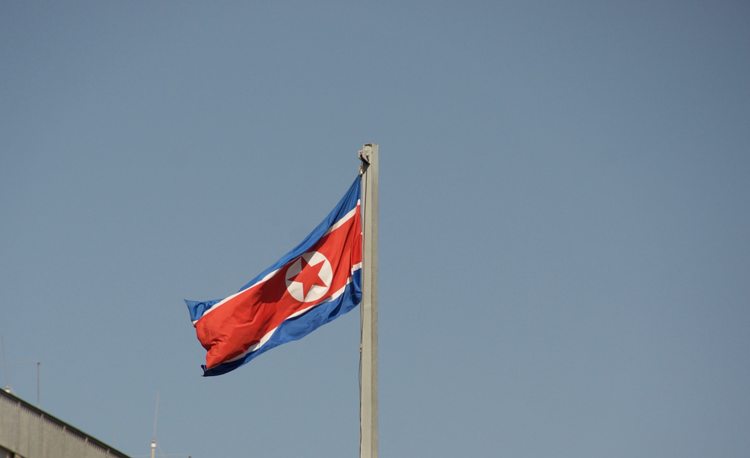WRAPUP 1-N.Korea protecting nuclear missiles, U.N. monitors say, ahead of summit talks

- Country:
- North Korea
North Korea is working to ensure its nuclear and ballistic missile capabilities cannot be destroyed by military strikes, U.N. monitors said ahead of a meeting between U.S. and North Korean officials to prepare a second denuclearisation summit.
The U.S. special envoy for North Korea, Stephen Biegun, will meet his North Korean counterpart on Wednesday in Pyongyang to prepare for a summit later this month between President Donald Trump and North Korean leader Kim Jong Un, the U.S. State Department said on Monday. Biegun has said he hoped the meeting with new North Korean counterpart Kim Hyok Chol would map out "a set of concrete deliverables" for the summit between Trump and Kim Jong Un.
Biegun, who held talks with South Korean officials in Seoul on Sunday and Monday, said he would be aiming for "a roadmap of negotiations and declarations going forward, and a shared understanding of the desired outcomes of our joint efforts". South Korean officials said they and the United States could be looking at a compromise that could expedite North Korea's denuclearisation - the dismantling of the North's main Yongbyon nuclear complex, which could be reciprocated by U.S. measures including formally ending the 1950-53 Korean War and setting up a liaison office.
But U.N. sanctions monitors said in a confidential report, submitted to a 15-member U.N. Security Council sanctions committee and seen by Reuters on Monday, said it "found evidence of a consistent trend on the part of the DPRK to disperse its assembly, storage and testing locations", using the abbreviation for North Korea's official name, the Democratic People's Republic of Korea. The North Korean mission to the United Nations did not immediately respond to a request for comment on the report, which was submitted to Security Council members on Friday.
The first summit between Trump and Kim Jong Un last June in Singapore yielded a vague commitment by Kim to work toward the denuclearisation of the Korean peninsula, where U.S. troops have been stationed since the 1950-53 Korean War. The Vietnamese resort town of Danang is seen as the most likely location for the next summit. Trump last Thursday hailed "tremendous progress" in his dealings with North Korea, but the view in the United States is that it has yet to take concrete steps to give up its nuclear weapons program.
'SANCTIONS INEFFECTIVE'
North Korea has complained the United States has done little to reciprocate its freezing of nuclear and missile testing and dismantling of some nuclear facilities. It has also repeatedly urged a lifting of punishing U.S.-led sanctions, a formal end to the war, and security guarantees. The U.N. report said sanctions were proving ineffective. "The country continues to defy Security Council resolutions through a massive increase in illegal ship-to-ship transfers of petroleum products and coal," the sanctions monitors found.
"These violations render the latest U.N. sanctions ineffective." The monitors said they had evidence of one unprecedented prohibited petroleum product transfer of more than 57,600 barrels, worth more than $5.7 million. North Korea has said it will never unilaterally give up its nuclear weapons unless the United States first removes any threat to it. North Korea has long demanded U.S. troops be withdrawn as a condition for peace. The Korean War ended with an armistice that left the two Koreas technically still at war.
The United States has stressed that U.S. troops are not a bargaining chip and South Korea has said U.S. troops in the South were unrelated to any future peace treaty and that American forces should stay even if such an agreement is signed. The U.S. State Department said on Monday that Washington and Seoul had reached an agreement "in principle" on sharing the cost of stationing U.S. troops in the Asian country.
CNN quoted a State Department official as saying that under the revised agreement, South Korea would boost its contribution to nearly $1 billion. A 2014 deal that expired last year required South Korea to pay about 960 billion won ($848 million) a year for keeping some 28,500 U.S. troops in South Korea. The allies had appeared unable to strike an accord to renew the deal despite 10 rounds of talks since March.
(With inputs from agencies.)
- READ MORE ON:
- Stephen E. Biegun
- Mike Pompeo
- United States of America
- North Korea–South Korea relations
- North Korea
- South Korea
- This Is Us
- Kim Jong-un
- Avanti un altro!
- Un Posto al Sole
- Kim Jong-il
- Kim Jong Un Song
- Tickets For Troops
- British Army
- Castle Rock
- Agatha Christie
- The Great Gatsby
- Basketball Official
- Computer monitor
- National security










